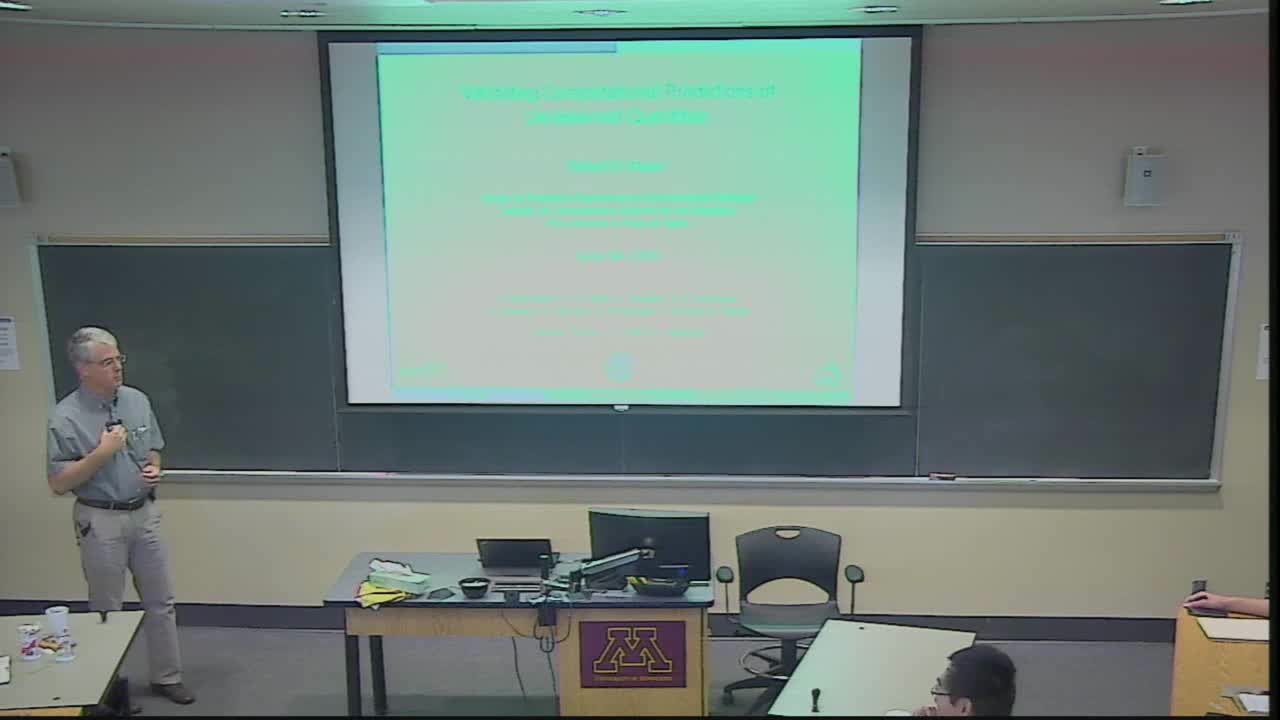Validating Computational Predictions of Unobserved Quantities
Presenter
June 24, 2015
Keywords:
- Computational methods
MSC:
- 90-08
Abstract
One of the most challenging and important applications of computational models of physical systems is to make predictions when no observations of the quantities being predicted are available. This is the usual situation when model results are to be used to support decisions (e.g. design or operations decisions) where predictions are needed precisely because observational data are not available when the decision must be made. Predictions, then, are essentially extrapolations of available information to the quantities and scenarios of interest. The validation challenge is to assess whether such an extrapolation can be made reliably. Computational models of physical systems are typically based on a reliable theoretical foundation (e.g. conservation laws) composed with various more-or- less reliable embedded models (e.g. constitutive relations). This composite model structure can enable reliable predictions provided the less reliable embedded models are used within the domain in which they have been tested against data. In this case, a reliable extrapolation is possible through the reliable theory, whose validity in the context of the prediction is not in doubt. In this lecture, we will explore techniques for assessing the validity of predictions in the context of this composite model structure. Included will be discussion of uncertainties due to model errors, the domain of applicability of embedded models, and the sufficiency of validation data.
